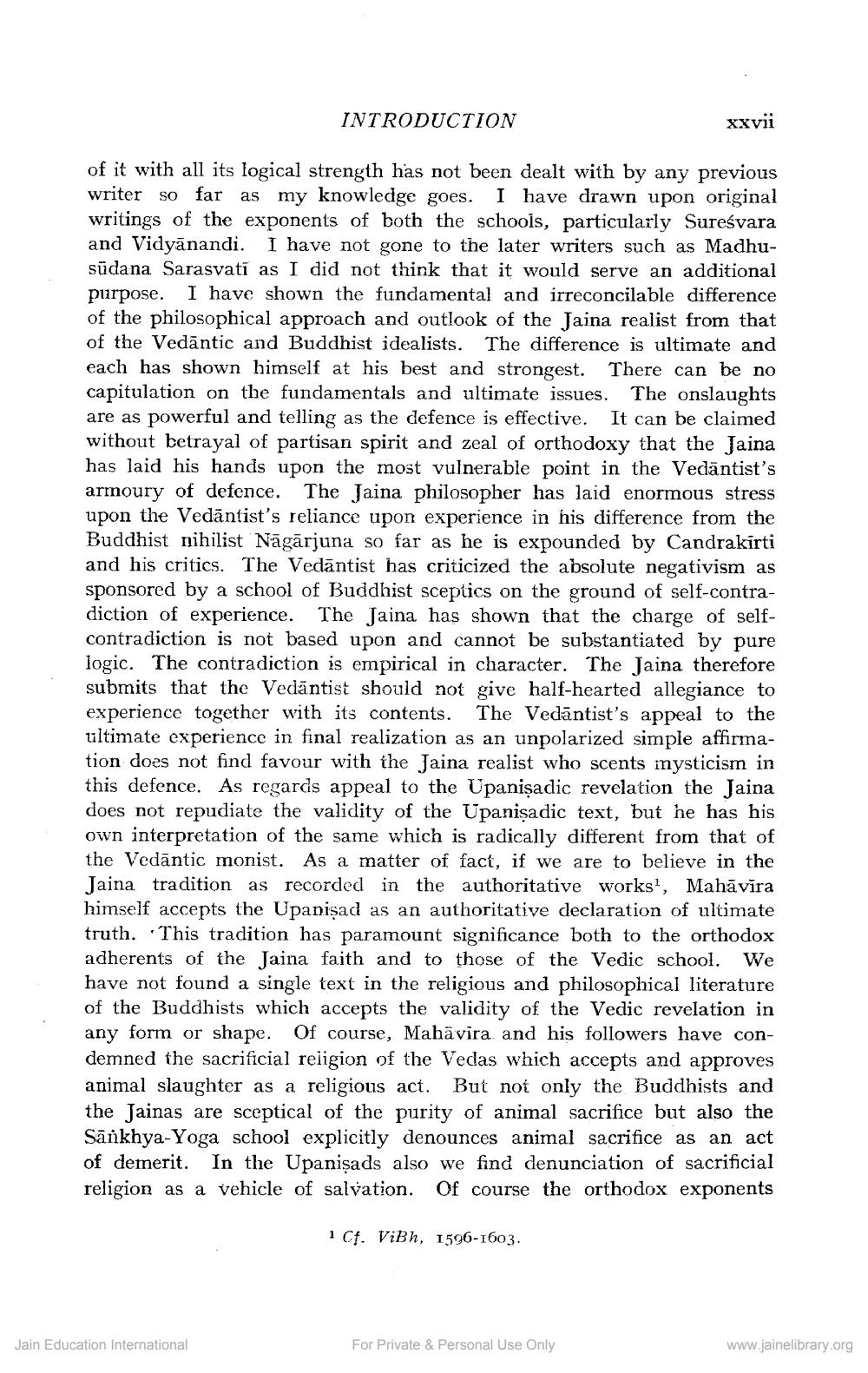________________
INTRODUCTION
Jain Education International
of it with all its logical strength has not been dealt with by any previous writer so far as my knowledge goes. I have drawn upon original writings of the exponents of both the schools, particularly Sureśvara and Vidyanandi. I have not gone to the later writers such as Madhusüdana Sarasvati as I did not think that it would serve an additional purpose. I have shown the fundamental and irreconcilable difference of the philosophical approach and outlook of the Jaina realist from that of the Vedantic and Buddhist idealists. The difference is ultimate and each has shown himself at his best and strongest. There can be no capitulation on the fundamentals and ultimate issues. The onslaughts are as powerful and telling as the defence is effective. It can be claimed without betrayal of partisan spirit and zeal of orthodoxy that the Jaina has laid his hands upon the most vulnerable point in the Vedantist's armoury of defence. The Jaina philosopher has laid enormous stress upon the Vedäntist's reliance upon experience in his difference from the Buddhist nihilist Nagarjuna so far as he is expounded by Candrakirti and his critics. The Vedantist has criticized the absolute negativism as sponsored by a school of Buddhist sceptics on the ground of self-contradiction of experience. The Jaina has shown that the charge of selfcontradiction is not based upon and cannot be substantiated by pure logic. The contradiction is empirical in character. The Jaina therefore submits that the Vedantist should not give half-hearted allegiance to experience together with its contents. The Vedantist's appeal to the ultimate experience in final realization as an unpolarized simple affirmation does not find favour with the Jaina realist who scents mysticism in this defence. As regards appeal to the Upanisadic revelation the Jaina does not repudiate the validity of the Upanisadic text, but he has his own interpretation of the same which is radically different from that of the Vedantic monist. As a matter of fact, if we are to believe in the Jaina tradition as recorded in the authoritative works', Mahavira himself accepts the Upanisad as an authoritative declaration of ultimate truth. This tradition has paramount significance both to the orthodox adherents of the Jaina faith and to those of the Vedic school. We have not found a single text in the religious and philosophical literature of the Buddhists which accepts the validity of the Vedic revelation in any form or shape. Of course, Mahavira and his followers have condemned the sacrificial religion of the Vedas which accepts and approves animal slaughter as a religious act. But not only the Buddhists and the Jainas are sceptical of the purity of animal sacrifice but also the Sankhya-Yoga school explicitly denounces animal sacrifice as an act of demerit. In the Upanisads also we find denunciation of sacrificial religion as a vehicle of salvation. Of course the orthodox exponents
1 Cf. ViBh, 1596-1603.
xxvii
For Private & Personal Use Only
www.jainelibrary.org




